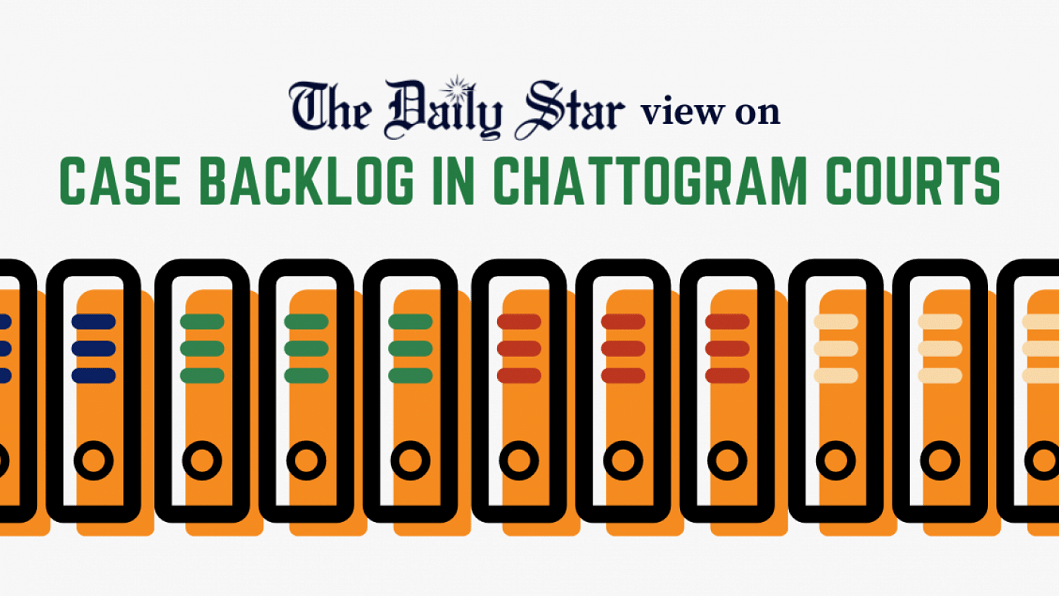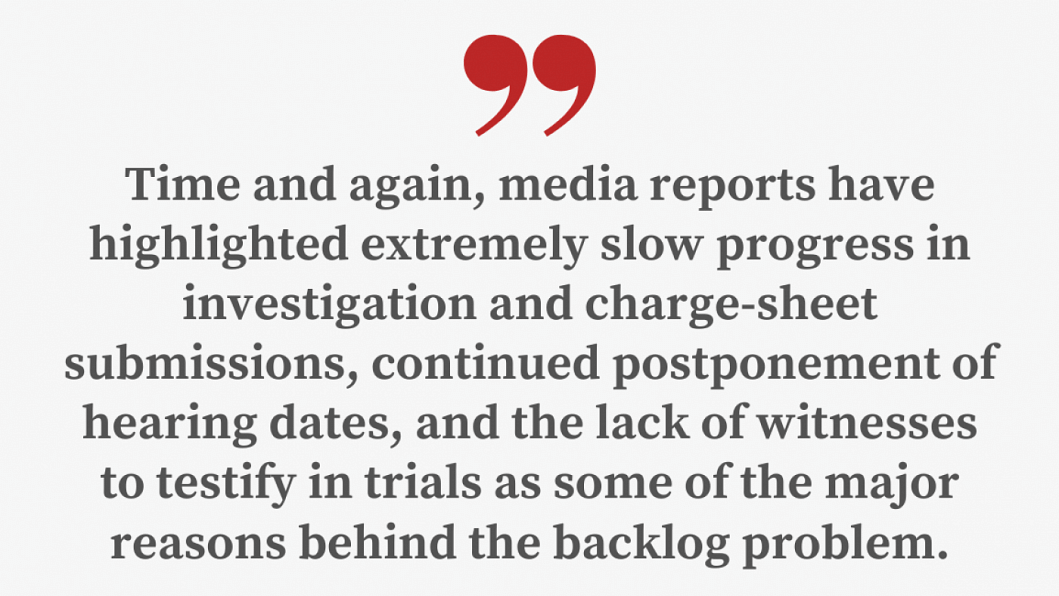Chattogram courts should fix their case backlog problem

How long should one have to wait to receive justice from the country's legal system? According to a report by Prothom Alo, certain plaintiffs in Chattogram have been waiting for as long as 25 to 32 years for their cases to be resolved. The case backlog is so terrible that, in September this year, there were more than 2.5 lakh civil and criminal cases stuck in the system, with at least 150 new cases being brought to the district's 76 courts on a daily basis.
Time and again, media reports have highlighted extremely slow progress in investigation and charge-sheet submissions, continued postponement of hearing dates, and the lack of witnesses to testify in trials as some of the major reasons behind the backlog problem. There is also an acute shortage of judges across the system. Last month, for example, this daily reported how there are currently only five judges, including the chief justice, dealing with upwards of 17,500 cases at the Appellate Division of the Supreme Court. That's 3,500 cases per head. Similarly, at the High Court Division, there are reportedly only 95 judges in charge of clearing a whopping 5.18 lakh pending cases. If this is the situation at the highest courts of the country, one can only imagine how the rest of the judiciary are currently faring.

This is a shocking state of affairs that makes the justice system more or less inaccessible to those who do not have the time and financial resources to pursue lengthy trials. The suffering caused by this is unimaginable. What is the point of having laws and courts in the service of citizens, only to have the system move so slowly that justice is effectively denied to them? If the state is not able to implement laws that punish violence, what is stopping society from spiralling into violence and lawlessness? The district – or even the country – cannot claim to be implementing the rule of law if the parents of a murdered child are still without justice 29 years later.
The authorities must do everything possible to strengthen the justice system immediately and ensure that the judicial process is not allowed to be manipulated or made ineffective. Changes will have to be made at every level – through the appointment of judges, better use of existing resources, the removal of procedural complexities and corruption, efficient and speedy investigations from law enforcement agencies, and building functional mechanisms to protect witnesses and encourage them to attend trials.
While all this cannot happen overnight, the relevant authorities must immediately show their commitment to getting the ball rolling. At the end of the day, we cannot lay claim to being a functional, democratic society if our judiciary is not able to deliver justice.

 For all latest news, follow The Daily Star's Google News channel.
For all latest news, follow The Daily Star's Google News channel. 





Comments